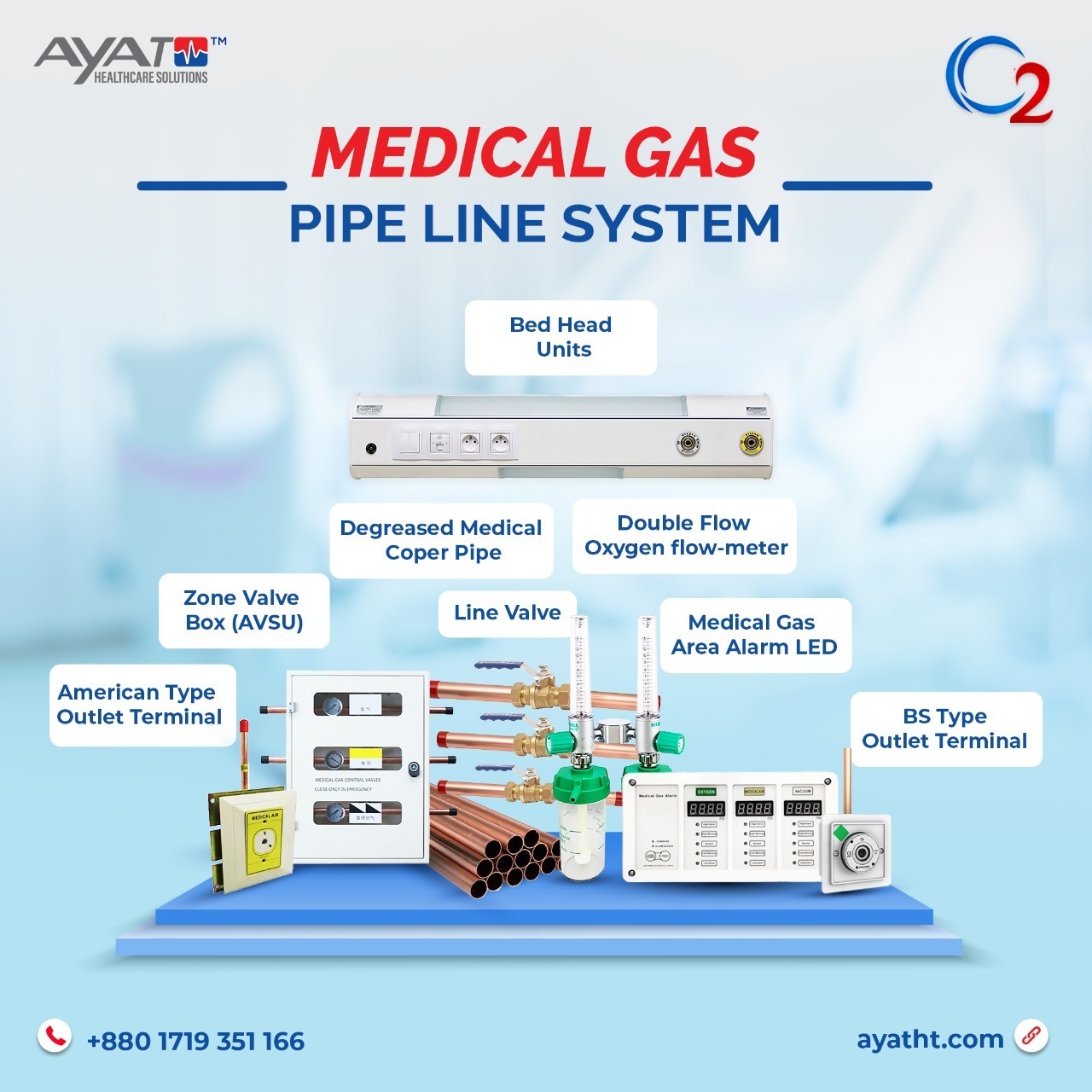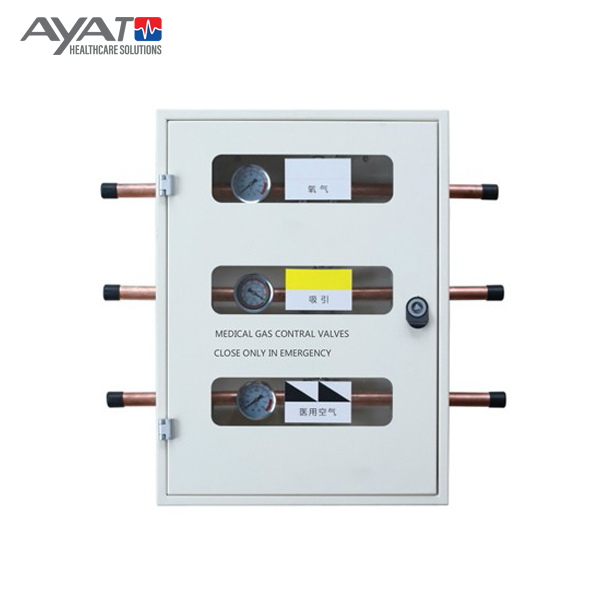
The Vital Role of Medical Gas Pipeline System (MGPS) in Bangladesh
The Vital Role of Medical Gas Pipeline System (MGPS) in Bangladesh

In the realm of healthcare infrastructure, every element plays a crucial role in ensuring the well-being of patients and the efficacy of medical services. Among these essential components, the Medical Gas Pipeline System (MGPS) stands out as a lifeline for hospitals and healthcare facilities. In Bangladesh, a country striving to enhance its healthcare services, the implementation and utilization of MGPS have become imperative. This article delves into the significance of MGPS in Bangladesh's healthcare landscape, exploring its benefits, challenges, and the path forward.
Understanding Medical Gas Pipeline System (MGPS)

Medical Gas Pipeline System (MGPS) is a network of pipes that delivers medical gases, such as oxygen, nitrous oxide, and compressed air, to various points within a healthcare facility. These gases are vital for patient care, supporting procedures ranging from resuscitation to anesthesia, and providing respiratory support.
In Bangladesh, where healthcare infrastructure is rapidly evolving, the integration of MGPS has become instrumental. The system ensures a steady and reliable supply of medical gases, reducing dependency on cumbersome cylinder-based delivery methods. Moreover, MGPS enhances safety by minimizing the risks associated with handling and storing compressed gases within the facility premises.
Benefits of MGPS Implementation in Bangladesh
- Improved Patient Care: The uninterrupted supply of medical gases facilitated by MGPS ensures that patients receive prompt and adequate treatment, especially during emergencies and critical care scenarios.
- Enhanced Efficiency: By eliminating the need to manually replace cylinders and monitor gas levels, healthcare providers can allocate more time and resources to patient care, thereby increasing overall efficiency.
- Cost Savings: While the initial setup cost of MGPS may be significant, its long-term benefits, including reduced cylinder handling expenses and minimized downtime, result in substantial cost savings for healthcare facilities.
- Safety and Reliability: MGPS reduces the risk of gas leakages and ensures the consistent delivery of gases at the required pressure and purity levels, enhancing the safety and reliability of healthcare operations.
Challenges in Implementing MGPS in Bangladesh
Despite its undeniable advantages, the implementation of MGPS in Bangladesh presents certain challenges:
- Infrastructure Constraints: Many healthcare facilities in Bangladesh lack the necessary infrastructure to support MGPS installation, including adequate space for pipeline networks and ventilation systems.
- Technical Expertise: The installation and maintenance of MGPS require specialized technical knowledge and skills, which may be limited within the local workforce.
- Financial Constraints: The upfront investment required for MGPS installation can be prohibitive for some healthcare institutions, particularly smaller clinics and rural hospitals.
- Regulatory Compliance: Adhering to regulatory standards and obtaining necessary approvals for MGPS installation can be a complex and time-consuming process in Bangladesh's evolving healthcare regulatory landscape.
Addressing these challenges requires a concerted effort from healthcare authorities, policymakers, and stakeholders to prioritize the integration of MGPS into the country's healthcare infrastructure.
Future Outlook and Recommendations
To maximize the benefits of MGPS in Bangladesh's healthcare sector, the following steps can be taken:
- Capacity Building: Investing in training programs to equip local technicians and healthcare professionals with the skills required for MGPS installation, operation, and maintenance.
- Financial Support: Providing subsidies or financial incentives to encourage healthcare facilities, especially those in underserved areas, to adopt MGPS technology.
- Public-Private Partnerships: Collaborating with private sector entities specializing in healthcare infrastructure to expedite the implementation of MGPS across a broader spectrum of healthcare facilities.
- Standardization and Regulation: Streamlining regulatory processes and establishing clear guidelines for MGPS installation and operation to ensure compliance and safety standards are met uniformly.
- Awareness Campaigns: Conducting public awareness campaigns to educate healthcare providers and administrators about the benefits of MGPS and the importance of its integration into healthcare facilities.
By addressing these recommendations, Bangladesh can strengthen its healthcare infrastructure and improve the quality of care provided to its citizens.
The Medical Gas Pipeline System (MGPS) plays a pivotal role in enhancing healthcare infrastructure, particularly in countries like Bangladesh striving to expand and improve their healthcare services. By ensuring a reliable supply of medical gases, MGPS improves patient care, enhances operational efficiency, and promotes safety in healthcare facilities. However, overcoming challenges such as infrastructure constraints, technical expertise, and financial barriers is essential to realizing the full potential of MGPS in Bangladesh. Through collaborative efforts and strategic initiatives, Bangladesh can harness the benefits of MGPS to advance its healthcare system, ultimately leading to better health outcomes for its population.